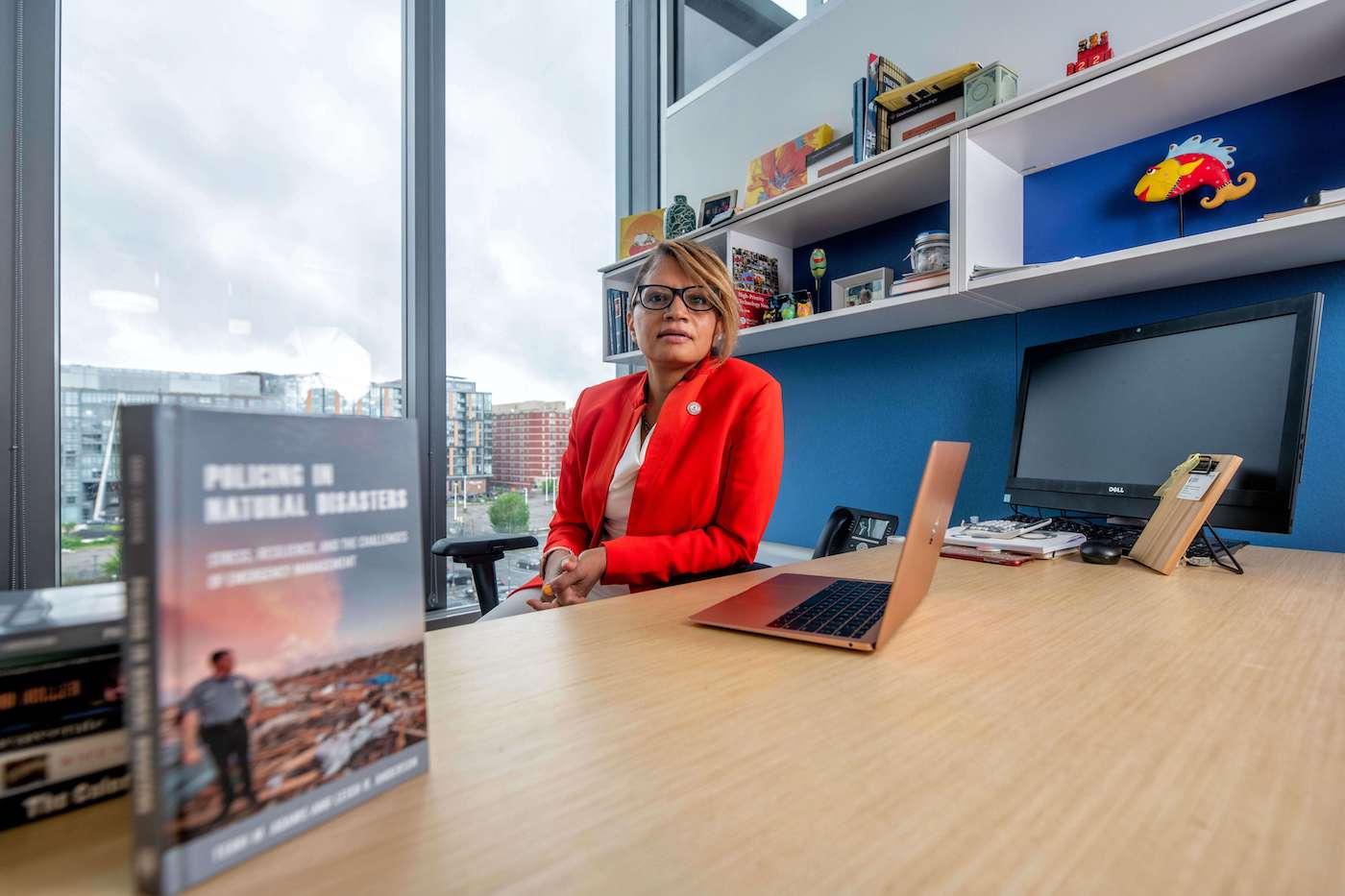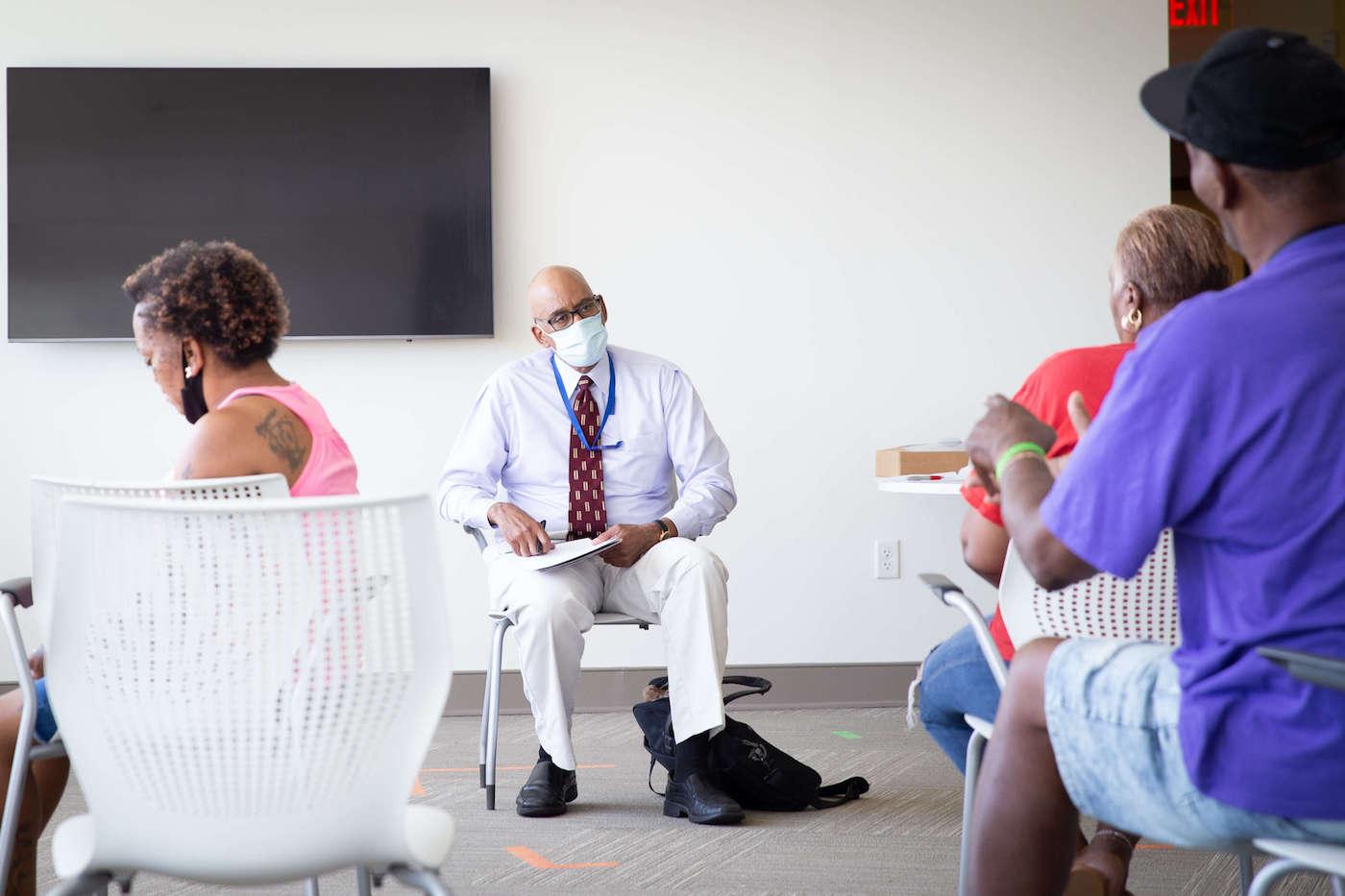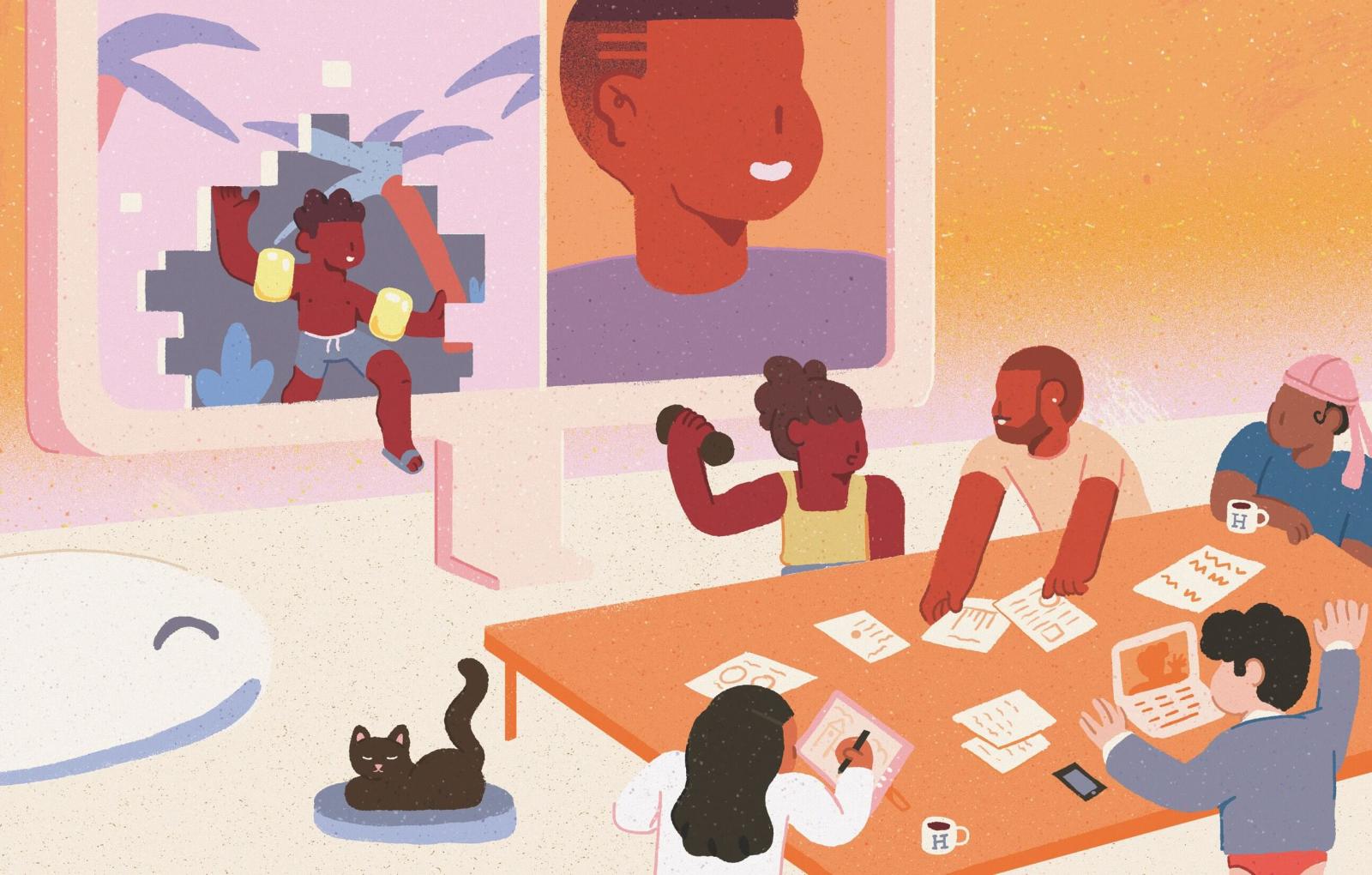Earthquakes, wildfires, floods, tsunamis, tornados – these are the type of events, along with their impact on individuals and communities, that disaster scientist Terri Adams, Ph.D., a professor of criminology in Howard’s Department of Sociology and Criminology, typically studies.
However, the pandemic is a first for her. Unlike other disasters she has studied, such as Hurricane Katrina, the Chile earthquake in 2010, and the Tōhoku earthquake and tsunami in 2011, “this is the first in our lifetime that an event has impacted the whole world on this scale,” Adams says.
Some years are particularly memorable, such as the year one gets married, has a first child or loses a loved one. The year 2020 will be one of those unforgettable periods, but for many, it will go down in infamy as a time of loss, struggle, isolation and pain.
After so much suffering, it is understandable that as the pandemic lessens its grip, some may be anxious to return to the way life was before. Yet the pandemic left such an indelible mark that some things will never be the same.
A Disaster of Epic Proportion
Not did the pandemic affect the entire planet, but it also took place over a series of months, unlike a weather event or terrorist attack that unfolds over a matter of days or hours. “The people who dealt with Hurricane Katrina could get away and see that life was still normal someplace else,” Adams says. However, the COVID-19 pandemic was a threat that no one could escape.
Then there was the trauma on top of trauma. People of color were already dealing with the reality that they were more likely to become seriously ill or die from COVID-19 than white people. Then on May 25, 2020, the murder of George Floyd by a police officer set off a racial reckoning that led to nationwide demonstrations and, for some, utter emotional exhaustion.
The pandemic and the racial unrest “served as a perfect storm to depression, anxiety and post-traumatic stress disorder for some people,” says JaNeen Cross, MSW, DSW, an assistant professor in the School of Social Work. “I think, as a community, individuals are still dealing with the residual effects of the trauma that occurred with the pandemic.”
Bracing for What’s Next
To understand how the pandemic may affect us in the coming months and years, it helps to know how people respond to disasters. Some people want to take action because it gives them a sense of control, says Adams. Others try to deny the seriousness of what is happening or go into escape mode by dulling their senses with food, drugs or alcohol.
Disasters also cause some people to come together. “During times of crisis, we look for ways to reaffirm our culture. That makes us feel less vulnerable ourselves,” says Adams. In fact, Adams believes the pandemic was a factor in motivating so many to take to the streets to protest police violence. “People wanted to connect with something larger than themselves, because we were all in this state of unprecedented uncertainty,” she says.

As time passes, we will see that the pandemic has sparked new norms. While it has created new challenges, it may ultimately bring about new blessings. Here’s what we might expect.
Anxiety Will Continue
There is a lot we still don’t know, says Tyish Hall Brown, Ph.D., MHS, associate professor in the Department of Psychiatry and Behavioral Sciences.
People are trying to figure out how to keep themselves and their families safe, Hall Brown says. Children under the age of 12 still can’t be vaccinated, and some people are hesitant to take the vaccine because they aren’t convinced it is safe.
Others have chosen not to take it because the vaccines have been politicized, Cross points out. In fact, 43 percent of Republicans refused to take it compared to 5 percent of Democrats, according to an April Monmouth University poll.
Those groups are vulnerable during COVID-19 spikes, Cross says. Then there are those who are vaccinated but worry about the risks when others around them are not. Once the flu and cold season begins, flu symptoms often mimic COVID-19 symptoms, Cross adds. People may wonder if they are dealing with the flu or COVID-19, which could spark even more anxiety. “There are still so many things that are up in the air for the [new] school year that I think there’s going to be a high level of anxiety for some people,” says Hall Brown.
Timelines Will Differ
When it comes to resuming “normal” activities, everyone won’t be on the same page. Some are still masking and avoiding crowds. Others are booking hair appointments and planning trips.
Those on the slower timeline may experience anxiety when family members call to say they are coming over. They may also feel pressured or guilt if they miss an event like a birthday party or baby shower because they aren’t ready to engage, Cross says. The person who is ready to move forward may feel disappointment when others don’t share their enthusiasm. “That can then trigger sadness and isolation,” says Cross.
Kids May Continue to Suffer Educationally — and Socially
Student achievement in math was five to 10 percentile points lower in 2020 than in 2019, according to NWEA, a Portland-based company that creates testing solutions for students. “Data shows nationally that children have regressed for the most part in public education over this last 16 to 18 months,” says Robert L. Cosby Jr., MSW, M.Phil., Ph.D., assistant dean for administration in the School of Social Work and director of the Multidisciplinary Gerontology Center, which studies and provides support to the minority elderly community.
The School of Social Work provides support to a community of grandparents who are raising their grandchildren through its Grandfamilies Program. When public schools were shut down because of the pandemic, students in the program were hit with a number of challenges. Some didn’t have laptops for virtual learning. Others didn’t have a dependable Wi-Fi connection. In some cases, grandparents were unfamiliar with technology and could not provide assistance.

While School of Social Work faculty called the grandparents to see how they could help through a Gerontology Center Friendly Visitor program, the long-term effects on the students’ education remains to be seen. Nationally, those who have resources to hire a tutor, for example, will likely fare better, Cosby says. Capital One, a GrandFamilies program partner, donated laptops to each family to help students complete school assignments.
Not only will students have some catching up to do when it comes to schoolwork, but some may have some catching up to do socially.
“A lot of kids have lost about a year of socialization,” says Hall Brown, who specializes in child and adolescent psychology. “Some students are feeling like they are behind socially and that they’re not going to have friends. For those students, it’s going to feel like starting all over again.”
Parents can be proactive about talking to their children about the return to normal activities and asking how they can be supportive, Hall Brown says. If their children appear to be struggling emotionally, parents should consider enlisting the help of a mental health professional.
Seniors May Be Grief-Stricken
In the midst of the pandemic, those 65 and over accounted for 80 percent of COVID-19 deaths, according to the Kaiser Family Foundation. Feelings of loss and grief may be particularly high among those who lost family and friends in 2020.
Seniors also may have been particularly isolated, as that population was explicitly told that it was too dangerous to go out during the pandemic, Cosby points out.
Some of the feelings may just be coming to the surface, says Cross. “We’re seeing people who used defense mechanisms to get through the pandemic. Now that things are calm and they don’t need that defense mechanism, now they’re feeling exhausted and overwhelmed.”
Of course, grief is not just relegated to seniors. “Whether it be the loss of a loved one, the loss of things that they used to be able to do or the loss of financial stability, those losses will likely stick with a lot of students,” says Hall Brown.
Those who are struggling with grief may benefit from mental health services, Hall Brown says. Some may get the most comfort from group sessions where they can talk to other people and process what they are going through, while others may find a few individual therapy sessions useful.
Short-Term Health May Suffer
While the pandemic ravaged on, many people put off going to the doctor because they feared being exposed to COVID-19, Hall Brown points out. As people go back to regular medical appointments, there may be health issues that have worsened during that time.
On top of that, sleep was thrown off, for many, and some people didn’t get the exercise to which they were accustomed. Then there were the pandemic pounds – some dubbed the “COVID 19” as a quip to the “Freshman 15” – that were packed on as people baked and snacked their way through quarantine. “Our health has been impacted physically and mentally as a result of COVID-19 restrictions,” says Hall Brown.
Some Will Start a New Life
Some people will experience what’s known as post-traumatic growth, says Adams. This is when people become reflective and actually grow because of a lifechanging experience. “People start to reassess their lives and how they show up in the world. And then they start to think, ‘What do I want to do from this point forward?’” says Adams. Some may change jobs. Others may launch that business they always dreamed of. Some may choose to end a marriage or leave a situation that has become intolerable. For these people, the pandemic will become a springboard to a new way of living.
Remote Work Will Bring New Freedoms
The year 2020 saw remote working become the norm. Some Howard alumni took advantage of the new freedoms. After learning that the government of Barbados was allowing tourists to work remotely there for up to a year with a special visa, Jamila White (B.A. ’94) made a post on Facebook seeing if anyone wanted to go.
That led to a private message thread and then a Facebook group called Barbados Black Pats. White ended up going to Barbados, as did many fellow Bison – some she knew, some she met for the first time.
“With Howard people and the Black expat community, it felt like freshman year at Howard where everyone was new and was looking to make friends,” White says.
A survey by research firm Gartner found that 82 percent of company executives planned to allow employees to work remotely at least some of the time even after the pandemic ends so workers can look forward to working from wherever they want.
People Will Be More Accepting of Mental Health Services
One bright spot in the pandemic: The world is focused on the importance of mental health, notes Hall Brown. “I don’t think I’ve discussed mental health as much previously as I have in this past year and I love it,” she says. Schools and companies are implementing mental wellness programs. “So many people are now making it more of a priority than they ever have before,” she adds.
Howard is doing its part to spread awareness. In 2020, the Howard University Department of Psychiatry, in partnership with the D.C. Department of Behavioral Health, launched the COVID-19 Recovery & Resiliency Project, an initiative designed to educate and provide short-term psychological support to frontline health care workers and D.C. residents who need help during the pandemic.
Telehealth Could Decrease Health Disparities
The pandemic taught us new ways of living and getting things done. To minimize physical interaction, health professionals leaned more heavily on telehealth services to visit with patients using technology.
“We’re really thinking about how we can deal with health disparities, particularly related to cost and access,” says Cross. “Now we know that even post-pandemic you can get the support that you need even though you may not be equipped in terms of transportation.”
Long-Term, There Will Be Better Coping Mechanisms
Despite the challenges caused by the pandemic, many people found new ways to cope.
“A lot of what we do, as therapists and mental health providers, helps people rethink what support looks like and how to utilize and access it through technology,” says Cross. “Yoga online, stretches, meditation practice, mindful practice, Bible study, prayer groups online, happy hours online. We’ve learned that self-care is not a request. It is a requirement.”
Some also may have learned that they were stronger than they thought. After all, they survived what Adams calls a once-in-a-lifetime disaster. That may be one of the biggest lessons of them all. “The human spirit is resilient,” Adams says.
Permanent Changes from the Pandemic
Forget about getting back to normal. These pandemic changes may be here to stay.
Side hustles selling mask fashion accessories.
Top infectious disease doc Anthony Fauci says face masks could become seasonal.
Workplace privacy.
Cubicles crowded together may be a thing of the past, as newly configured office spaces are more spread out and separated by partitions.
More trips to Barbados.
With 82 percent of executives OK with remote working, employees no longer need to live near the office.
Doctor visits via smartphone.
There was a 154 percent increase in telehealth visits during the last week in March 2020 from the year before, according to the Centers for Disease Control and Prevention.
The resurgence of the Wakanda Forever salute.
With people still wary of COVID-19, the handshake loses its appeal.
Article ID: 186




